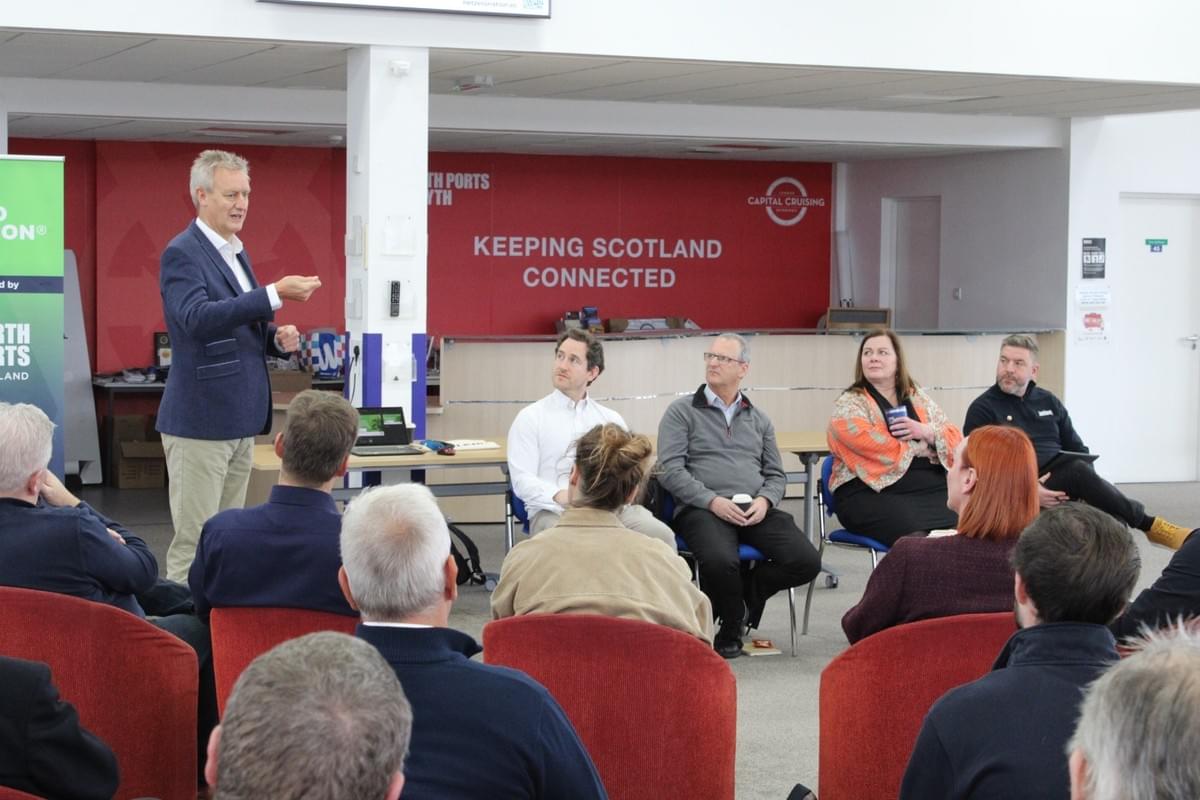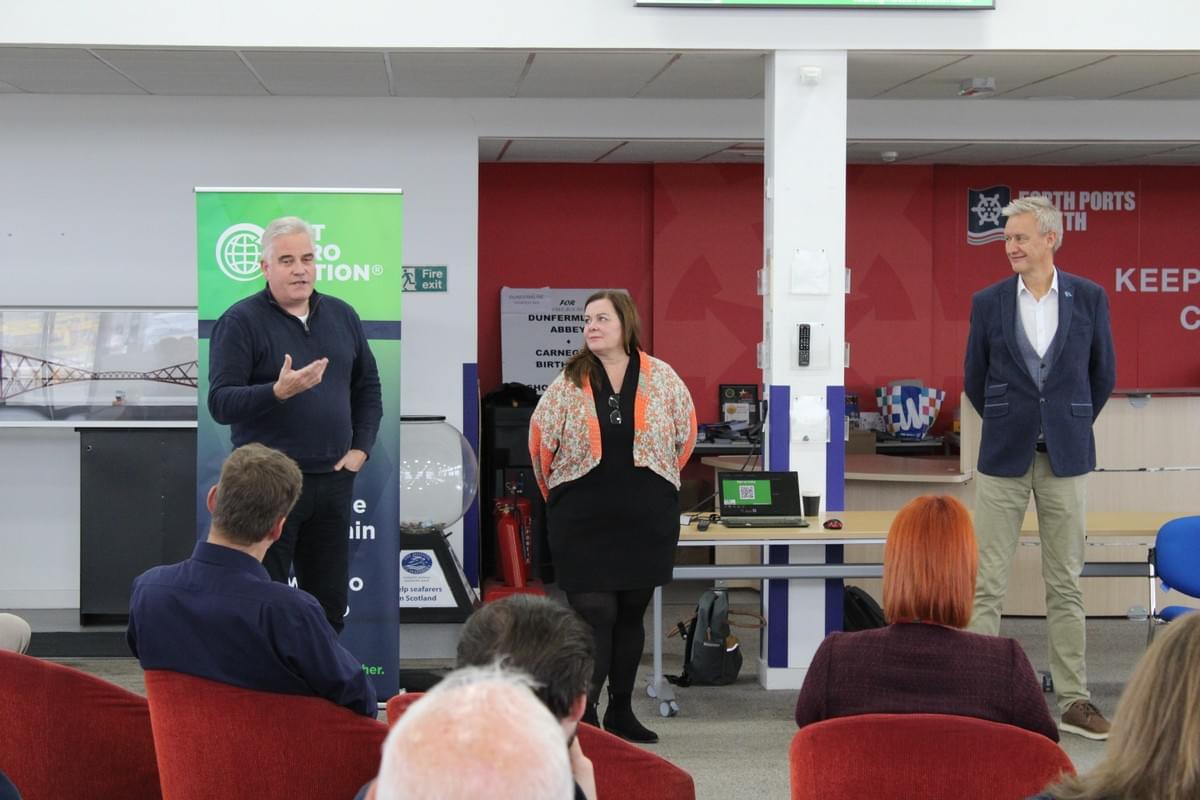The Race to Net Zero: Why Every Business Must Act Now
The Race to Net Zero: Why Every Business Must Act Now
By Wendy Sneddon
Last week, business leaders gathered at Forth Ports at the Port of Rosyth for a powerful Net Zero Nation event that cut through the noise. The message from the panel was unflinching: the clock is ticking for every organisation that wants to stay relevant in the new economy.

Among the speakers was Jacqueline Ireland, Head of Procurement and Supplier Sustainability for Forth Ports, who issued a statement that resonated across the room:
“At Forth Ports we have a roadmap to Net Zero and are working with businesses across all sectors to ensure credible carbon reduction plans are in place by 2030, this ensures alignment across the supply chain. 2030 is the stake in the ground. We need to collaborate to hit this timescale”
A New Business Reality
What once felt like a distant sustainability goal is now a commercial requirement. Large institutions like the NHS, along with government bodies and major supply chains, are setting strict procurement standards around carbon accountability. They want to work with businesses that can prove they’re measuring and managing their emissions.
For many small and medium-sized enterprises (SMEs), this shift can feel daunting. But it’s also a remarkable opportunity, a chance to modernise, cut costs, and build long-term resilience.
The Forth Ports Conversation
The event at Forth Ports brought together industry leaders, and business owners to discuss what “net zero” really means in practice. Beyond the technical language of carbon reporting, the focus was on action, how to move from awareness to measurable progress.

Net Zero Nation (netzeronation.eco), the organisation behind the event, is on a mission to make sustainability accessible to every business in the UK. Their approach is pragmatic: provide clear steps, credible support, and certification that holds weight with buyers.
Their framework, called the NZN Accelerator, runs on a simple but powerful model:
Master → Measure → Manage → Maintain → Momentum.
It starts with education, helping teams understand the science and the stakes. Then it moves into carbon measurement using SECR-compliant tools, before guiding companies to build and implement a tailored carbon reduction plan. Finally, the programme supports ongoing monitoring and leadership development, ensuring that “net zero” becomes part of the culture, not just the paperwork.
Why It Matters
The numbers are sobering.
Business and industrial activities account for more than a quarter of the UK’s total greenhouse gas emissions. Yet fewer than one in five SMEs currently measure their carbon footprint.
That gap is closing fast. As more large organisations align with net-zero procurement standards, smaller suppliers without carbon plans risk being left out of tender lists altogether.
The NHS’s 2030 deadline is a signpost. Other sectors, construction, transport, manufacturing, tourism, tech, are expected to follow.
Doing the Right Thing, and the Smart Thingg
This isn’t just about ethics or compliance. It’s about competitiveness. Businesses that start their carbon journey now will be more attractive to clients, investors, and employees who care about impact.
Reducing emissions can also lead to tangible financial benefits:
• Win more business watch this space for case studies.
• Lower energy bills and resource costs.
• Greater efficiency across operations.
• Access to new funding and procurement opportunities.
• Stronger brand reputation and customer loyalty.
Perhaps most importantly, a sense of purpose and pride in leading by example.
What a Carbon Plan Looks Like
Creating a carbon plan doesn’t have to be complicated. The essentials include:
1. Measuring your baseline emissions — understanding where your energy use, transport, and waste sit today.
2. Setting targets that are realistic and aligned with national goals (usually aiming for net zero by 2045–2050).
3. Identifying actions — whether that’s upgrading equipment, switching suppliers, improving transport logistics, or investing in renewables.
4. Tracking progress using credible data and software tools.
5. Communicating results clearly with stakeholders, clients, and your team.
As Net Zero Nation emphasises, you don’t have to do it all at once. You just need to start, and show that you have a plan in motion.
From Policy to Practice
Forth Ports itself is leading by example. Their sustainability strategy includes significant investments in energy-efficient infrastructure and clean energy solutions, making Rosyth a fitting venue for the event. The discussion highlighted how collaboration between the public and private sectors can drive faster, more meaningful change.
Speakers underscored that net zero is not a solo sport. Progress depends on partnerships, suppliers, customers, local authorities, and communities all moving in the same direction.
The 2030 Challenge
Jacqueline Ireland’s comment landed because it drew a clear line in the sand. Businesses have less than five years to prepare for a future where carbon transparency is a precondition for trade.
Waiting for regulation to catch up is no longer an option. The smart move is to get ahead of it, to be the supplier everyone wants to work with because you’ve already done the work.
That’s the spirit behind Net Zero Nation: empowering businesses to take ownership, to build credible carbon plans, and to lead the transition rather than resist it.
Where to Begin
For those unsure where to start, netzeronation.eco offers practical guidance. Their accelerator programme helps you measure your footprint, build your plan, and achieve certification recognised by major buyers.
Other steps you can take today:
• Appoint someone in your team as your sustainability lead.
• Publicly commit to a reduction target transparency builds momentum.
• Join Net Zero Nation for support to create your carbon accounts, carbon reduction plan, community and accountability.
The path to net zero isn’t about perfection. It’s about intention, transparency, and consistent improvement.
A Collective Responsibility
The Port of Rosyth event was a reminder that climate action isn’t just a corporate agenda item, it’s a shared responsibility. Every decision, from the energy we use to the suppliers we choose, adds up.
And while 2030 may sound far away, it’s less than 60 months of business cycles. The companies that begin now will be ready; the ones that don’t may find doors quietly closing.
The Takeaway
At Forth Ports, one theme echoed through every conversation: doing the right thing is now the only thing.
Whether you run a global enterprise or a small family business, the time to act is now. Start measuring. Start managing. Build your plan.
Because by 2030, the question won’t be “Are you on the journey to net zero?” — it will be “How far along are you?”
